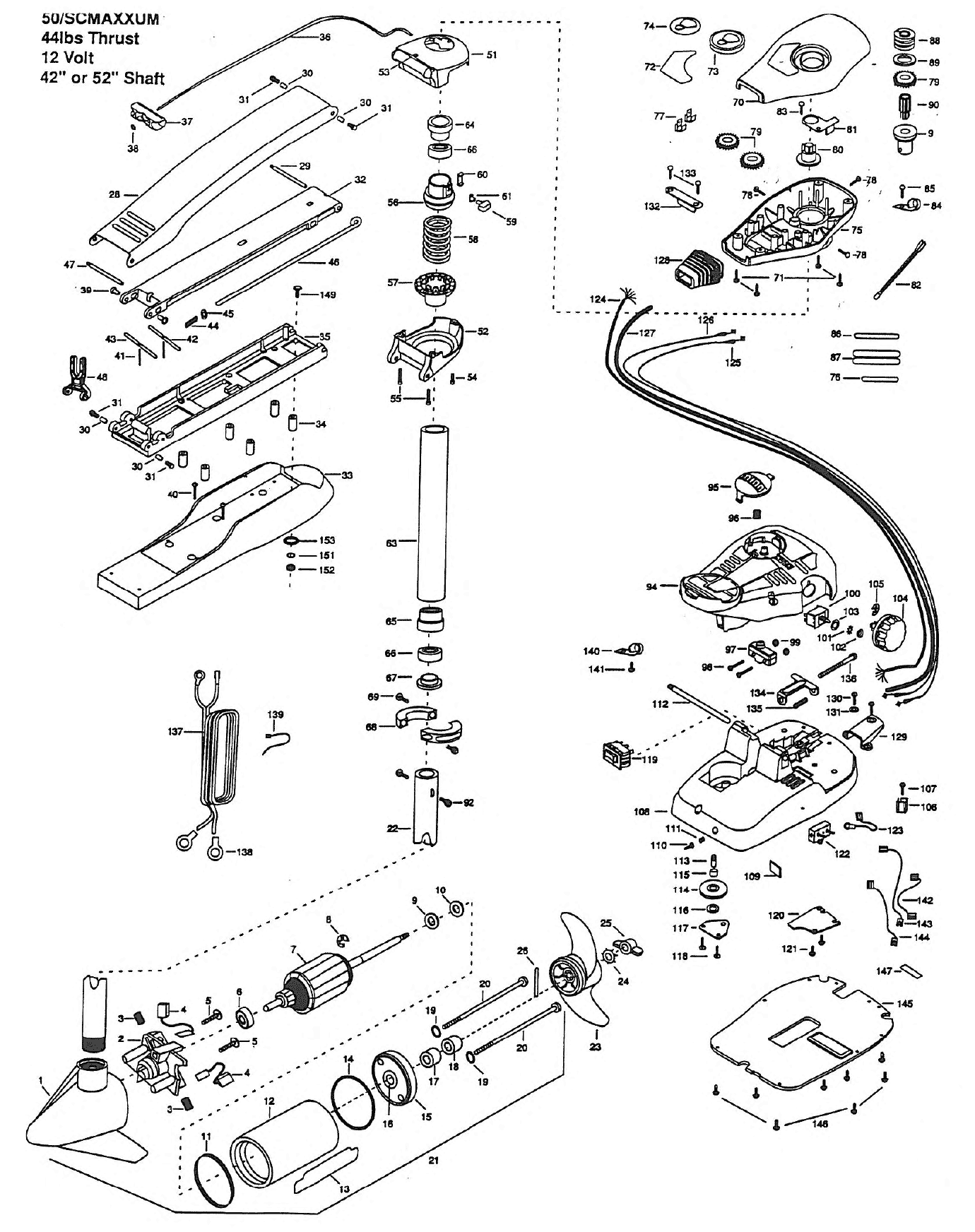When dealing with a 12v Motorguide Trolling Motor Wiring Diagram, it is essential to understand the intricacies of the electrical system in order to effectively troubleshoot any issues that may arise. These diagrams serve as a roadmap for navigating the wiring of the trolling motor, allowing you to identify connections, components, and potential problem areas.
Why 12v Motorguide Trolling Motor Wiring Diagrams are Essential
12v Motorguide Trolling Motor Wiring Diagrams are crucial for several reasons:
- They provide a visual representation of the electrical connections within the trolling motor system.
- They help in understanding the circuit layout, ensuring proper installation and maintenance.
- They assist in troubleshooting electrical issues by identifying specific components and connections.
How to Read and Interpret 12v Motorguide Trolling Motor Wiring Diagrams
Reading and interpreting a 12v Motorguide Trolling Motor Wiring Diagram requires a basic understanding of electrical symbols and circuit diagrams. Here are some tips to help you navigate these diagrams effectively:
- Familiarize yourself with common electrical symbols used in the diagram.
- Follow the flow of the circuit from the power source to the various components.
- Identify key components such as batteries, switches, wires, and connection points.
Using Wiring Diagrams for Troubleshooting Electrical Problems
When faced with electrical issues in your trolling motor system, a 12v Motorguide Trolling Motor Wiring Diagram can be a valuable tool for troubleshooting. Here’s how you can use the diagram effectively:
- Trace the path of the circuit to identify any loose connections or damaged components.
- Check for continuity using a multimeter to ensure proper electrical flow.
- Refer to the wiring diagram to ensure correct wiring configurations and connections.
Importance of Safety
Working with electrical systems can pose potential risks if proper safety precautions are not taken. When using 12v Motorguide Trolling Motor Wiring Diagrams, it is important to prioritize safety. Here are some safety tips and best practices to keep in mind:
- Always disconnect power sources before working on electrical systems.
- Use insulated tools to prevent electric shock.
- Avoid working on electrical systems in wet or damp conditions.
- Seek professional help if you are unsure about any aspect of the wiring diagram or electrical system.
12v Motorguide Trolling Motor Wiring Diagram
Mercury | TROLLING MOTOR | MotorGuide 700 Series | 1998 & Up | Wire

12V Motorguide Trolling Motor Wiring Diagram – Knittystash.com

12V Motorguide Trolling Motor Wiring Diagram Database

Ranger Trolling Motor Plug Wiring Diagram – Weaveal
12v motorguide trolling motor wiring diagram

COMPLETE TROLLING MOTOR(MODEL SWDS54FB/SWDS54FBV) (12 VOLT) – 2003
